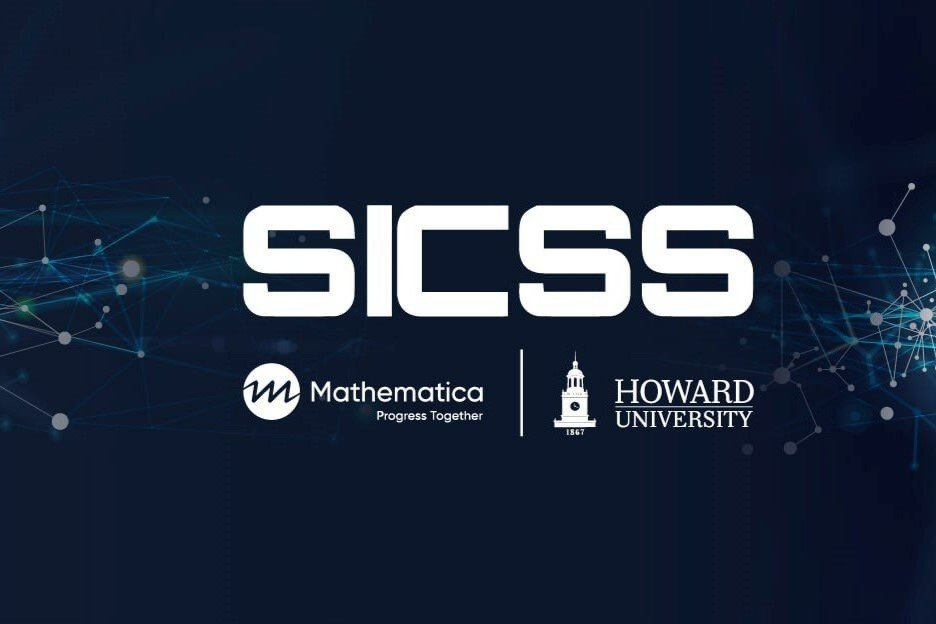Finding Personal Restoration through Computational Social Science at Howard University
This blog post is the eighth of nine in a series called “The Future of Computational Social Science is Black” about SICSS-Howard/Mathematica 2021, the first Summer Institute in Computational Social Science held at a Historically Black College or University. To learn more SICSS-H/M read the first post in the series.
SICSS-Howard/Mathematica participants
Few things in my life have fallen under the life-changing category — getting into a PhD program, interviewing the photographer Wolfgang Tillmans, moving to New York City from Philadelphia. My experience at SICSS-Howard/Mathematica (SICSS-H/M) was also life-changing. It ranks high right alongside the most important life-changing events in my life. Admittedly, I didn’t expect to be welcomed into a space in which I did not have any formal education and training with such appreciation, warmth, and connection. I was encouraged to participate and was shown my participation had value. That surprised me.
SICSS-H/M arrived at a time in my life when I was primarily focused on my studies, keeping my body healthy, and distractions. I wasn’t even sure I was going to apply when Professor Saijun Zhang recommended it back in 2020. I was still coming to terms with the past year and a half of isolation and watching the world change. As a doctoral student at the University of Mississippi, I live in Oxford, Mississippi. It is a relatively small town, and there is not much to do here. I enjoy playing tennis and going to the gym (okay, maybe not “enjoy”), but there is a point in time when you must give your body a break from exercise, your mind a break from study. You want to connect with other people on a deep level. At SICSS-H/M, I found the connection I did not realize I needed and had been missing.
In retrospect, Oxford, Mississippi, was a barrier between me and the pandemic. I didn’t notice that I had lost my usual fire and drive over the past year and a half. Natural disasters, the pandemic, and the killing of black men reduced my flame to embers. I was oblivious to the extent to which so many current world events were affecting me.
SICSS-H/M unexpectedly facilitated my daily connection to other people passionate about creating change in the world, even over Zoom. During the two weeks, I arrived excited for the work ahead. I also felt empowered because I could be my authentic self while doing the work — an approach that had become foreign to me. I met people on a deeper level, learning that there were people from my tribe worldwide engaging in this work. Even amid daily pre-institute readings and R exercises, I could feel that connection. Many explicit conversations made this apparent, but the many unspoken conversations resonated the most with me. How do I describe a feeling you are not alone when alone? How do I describe a knowing glance, a particular tone, a certain laugh, or a nod to someone who doesn’t know they need those things until they see it? SICSS-Howard/Mathematica is restorative. There, I promise you will find yourself and your magic again. And your tribe.
For more information about SICSS-Howard/Mathematica 2022 and the application procedure, check out our website. Also follow us on Twitter, like us on Facebook, and join our email list!
About the author
Rashun Miles is a PhD student in the Department of Social Welfare at the University of Mississippi and an affiliate of the Ricardo Brennand Institute in Recife, Brazil. His research focuses on museums, integrating urban complex systems and feminist pedagogy (ethics of care) to address compassion fatigue among helping professionals. Rashun also has a Master of Education from Teachers College at Columbia University in Psychology and a Master of Social Work from the University of Michigan.





